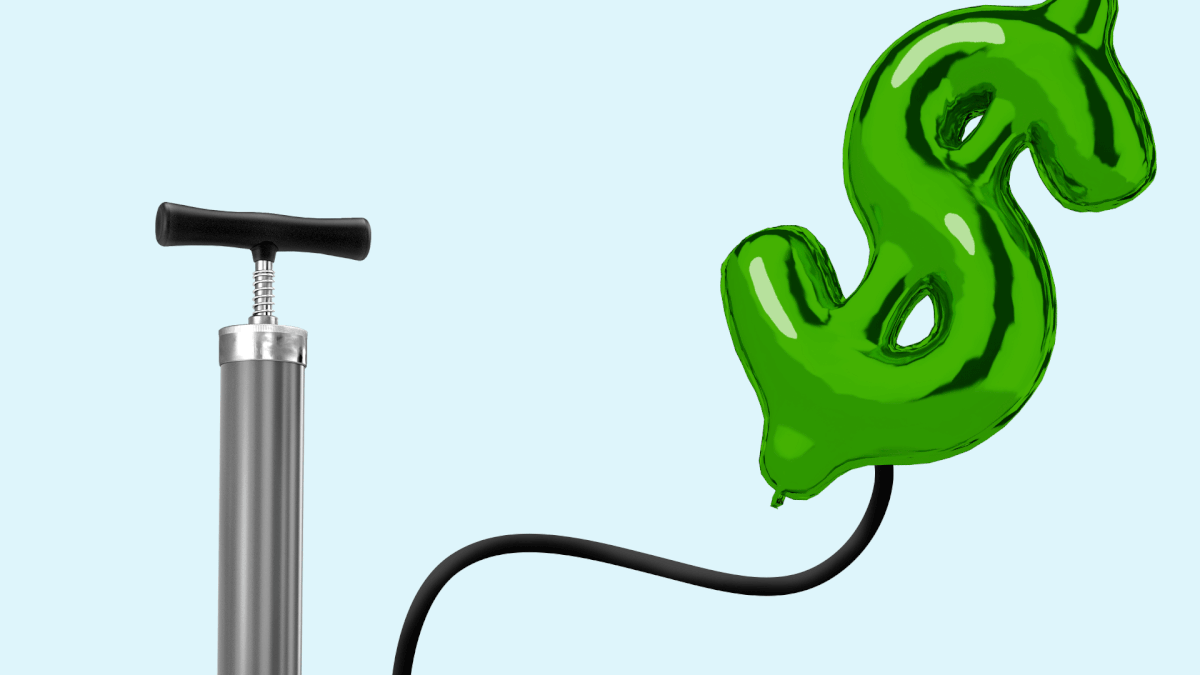|
|
|
|

Trust This.
By Joseph E. Seagle, Esq. ● Feb 17, 2023
Smart Brevity® count: 3.5 mins...961 words
👋 Happy Friday! ☀️ In case you didn’t know already, today is national #RandomActsOfKindnessDay. As Mark Twain said, “Kindness is a language which the deaf can hear and the blind can see.” 👀 Read on to see what more I have to say on the subject in section 2 below.
|
|
1 big thing: Inflation tar pit

The latest US data is showing that inflation is stubbornly hanging on for dear life.
Why it matters: The Fed has two jobs: maintain full employment and price stability. While the former is accomplished, the latter is not working out.
By the numbers: Producer prices rose 0.7%, almost twice what the experts expected.
-
General inflation rose another 0.5% in January, again more than expected, and 6.4% higher than the year before.
-
The Congressional Budget Office now estimates that the US debt will surge by almost $19 trillion over the next decade, twice the amount they estimated back in May.
-
The CBO also estimates that GDP will only grow 0.1% this year instead of the originally projected 2.2%.
-
Household debt jumped to $16.9 trillion in the last quarter of 2022.
-
Mortgage loan applications dropped 7.7% last week.
-
Nonfarm productivity dropped another 1.5% during 2022 according to the Bureau of Labor Statistics.
Productivity filters through to everything and up to the GDP.
-
From 1948 to 2005, the US averaged productivity increases at 2.2% a year.
-
Then, from 2005 to 2019 (before the pandemic), the average dropped to 1.4%.
-
Since then, it’s not been gangbusters.
-
We have typically increased productivity with technological advances. Artificial intelligence, virtual/augmented reality, quantum computing, and healthcare advances will likely drive productivity increases for the foreseeable future.
What they’re saying: More Fed members are voicing support for raising the central bank’s benchmark above the 5% floated earlier this year. Now, we can expect at least 5.2% by July and 5.5% to even 6% by December.
Raising interest rates will continue to make mortgages, car loans, credit card balances, and commercial debt expensive. With homes, buyers were getting used to seeing a “6” as the first number in their interest rate, but now they may need to consider a “7” in the mix.
The bottom line: The Fed is walking a tightrope: raise interest rates to slow inflation but also put people out of work. Labor shortages have reduced productivity, but will higher unemployment help ease that problem? Only if technology can compensate for the humans sitting at home, perusing the want ads.
Go deeper: McKinsey Global
|
|

On this day of random acts of kindness, we must exercise our abundance mentality and let go of the scarcity mentality.
Why it matters: When we have an abundance mindset, we believe there are plenty of resources for everyone. This is opposed to a scarcity mindset, where we feel that resources are limited.
A scarcity mentality means that — if someone else has something — you feel you can’t have it as well because there’s not enough of it to go around.
-
It makes us feel negative, and we tend to hyperfocus on things that make us feel that way. We blame other people, situations, and anything else we can for our negative feelings.
-
When focused on scarcity, we see the world as a string of transactions. If I give you something, I expect something in return. Quid pro quo is the name of the game. We can’t imagine that someone would do something just to be nice. They must want something in return. It breeds distrust.
-
We tend to close in our networks, distrustful of those outside, because they may take something we want/need, and there won’t be enough to go around.
-
We’re all competitors.
With an abundance mindset, we feel that there are plenty of resources to accomplish anything we set our minds to accomplish.
-
It makes us feel positive, allowing us to keep our minds and eyes open to more opportunities. We take responsibility and blame for our own shortcomings, trying to improve rather than blame.
-
We’re more open and generous with our time, money, experience, and resources. We don’t expect a quid pro quo for everything we do or receive.
-
Everyone is a potential collaborator.
Our thought bubble: Our mission is to help others and ourselves aspire to a better life. This mentality guides our hiring, retention, promotion, and customer service processes. We lead by this example and hope to inspire others to do the same.
Go deeper: University of Washington Medicine and The 7 Habits of Highly Effective People
|
|
|
|
|
Rufous, at 12 years old, had 13 teeth removed yesterday. Like one of those dads who takes video of their teens, high on painkillers after wisdom teeth extraction, I just had to get a picture of him as he navigated the pain meds at home. This is not his usual sitting stance.
Right now, he ain’t nothin’ but a hound dog, crying all the time. Guess one of my random acts of kindness today will be to give him his first taste of wet (soft) dog food.
|
|
We hope you found this helpful — any feedback is appreciated and can be shared by hitting reply or using the feedback feature below.
Be on the lookout for our next issue! 👋
|
|
|
|
Was this edition useful?
 

Your responses are anonymous
|
|
|
Powered by

|
|
|













